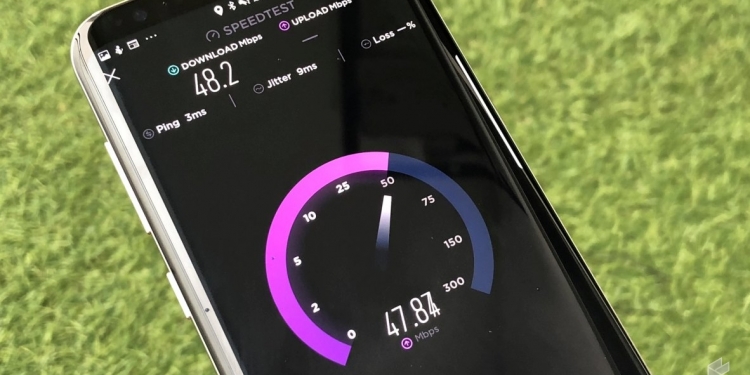Communications and Multimedia Minister (MenKomm) Tan Sri Annuar Musa has tweeted JENDELA‘s Q1 2022 numbers which he said are showing encouraging results. He shared that Malaysia now has an average speed of 40.13Mbps, which already exceeds JENDELA’s Phase 1 target. In terms of 4G population coverage, there’s a slight increase to 95.5% and there are 9 months remaining to achieve its 96.9% population coverage target by the end of this year.
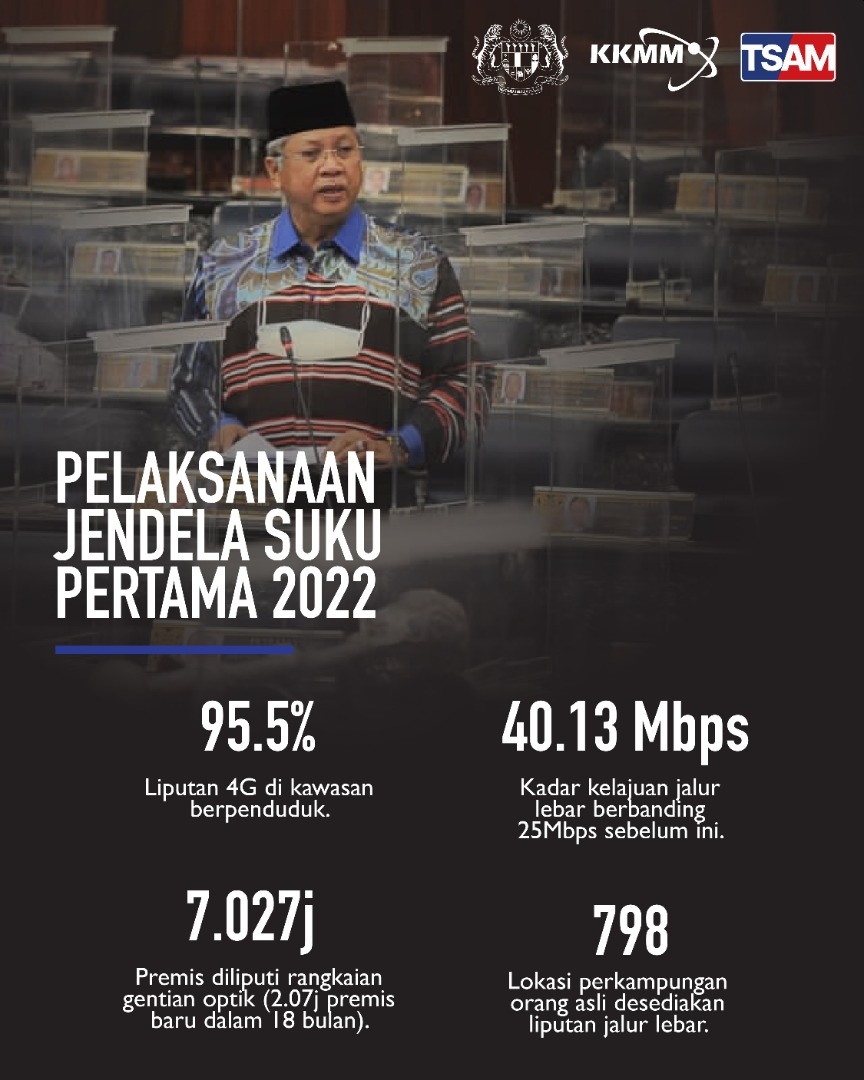
In terms of fibre access, there are currently 7.027 million premises passed so far which include 2.07 million premises that were fibre passed in the last 18 months. He also added that 798 Orang Asli villages have been provided with high-speed broadband access.
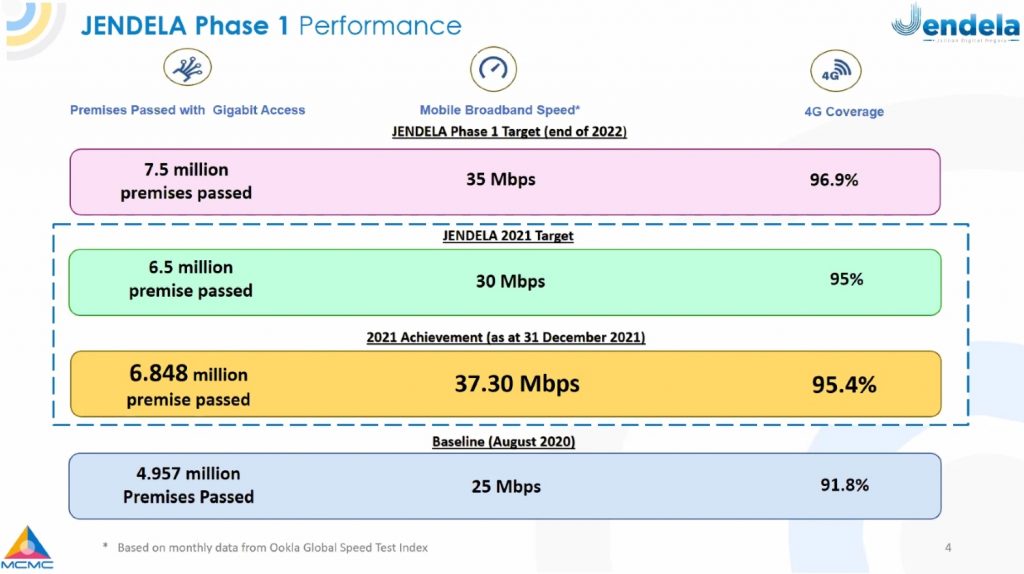
To recap, the JENDELA programme is aimed at improving 4G coverage and performance, as well as increasing fiberisation nationwide. Under Phase 1, it aims to achieve 96.9% 4G population coverage with an average speed of 35Mbps by the end of 2022. In terms of premises with fibre access, the programme aims to get a total of 7.5 million premises passed by the end of this year.
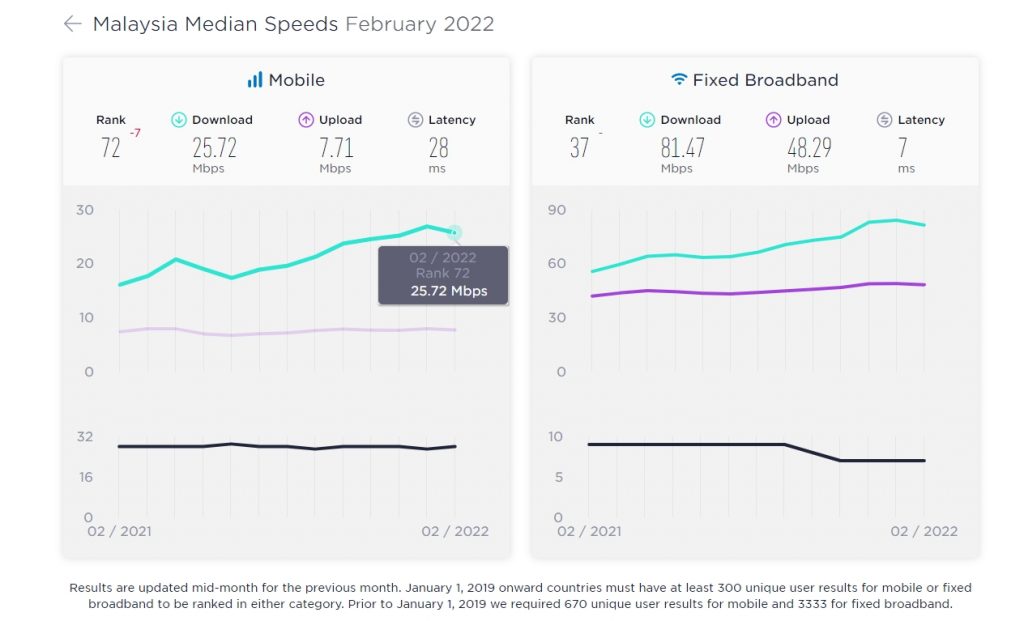
Although 40.13Mbps average speed seems to be an impressive number, it is worth highlighting that the Malaysian Communications and Multimedia Commission (MCMC) is using the mean average speed to keep its reports consistent. The speed numbers are obtained from Ookla Speedtest, which has already switched to Median Speeds to measure its Global Index. Looking at Ookla’s latest stats, Malaysia has a Median speed of 25.72Mbps as of February 2022.
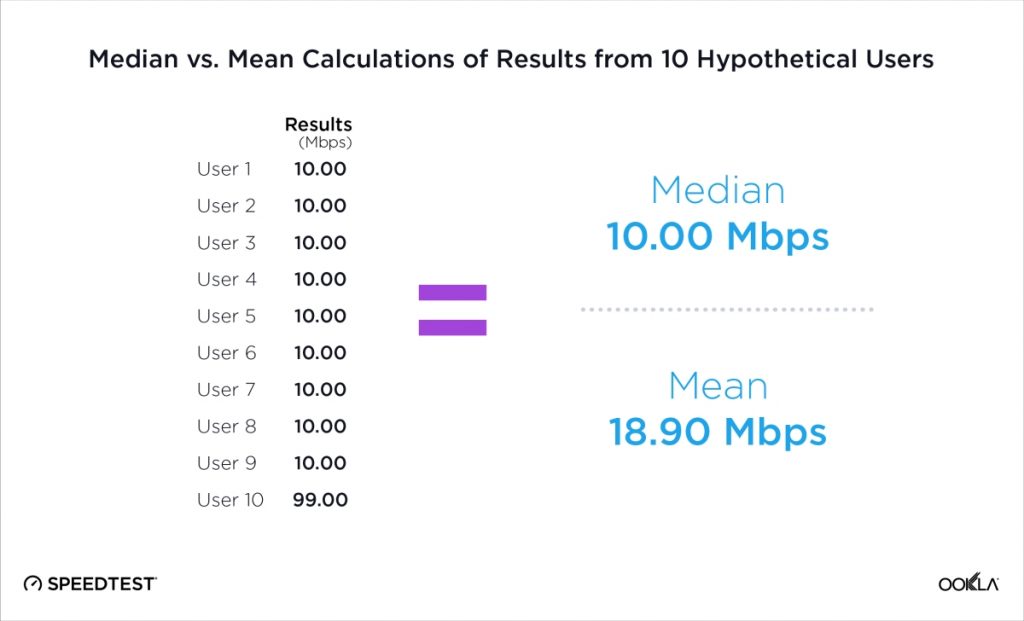
Ookla made the switch from Mean to Median calculation back in November 2021. According to the internet speed benchmarking provider, Median is a measure that captures the typical user’s experience. With the introduction of 5G and gigabit internet, switching to Median will ensure countries where a greater share of people actually have high-speed internet rank higher, rather than rewarding countries where only a few areas have high speeds and everyone else is left waiting. As shown in the example above, a Mean calculation may show a significantly higher average speed even if a small percentage of users are enjoying 10 times faster speeds than the majority of users.
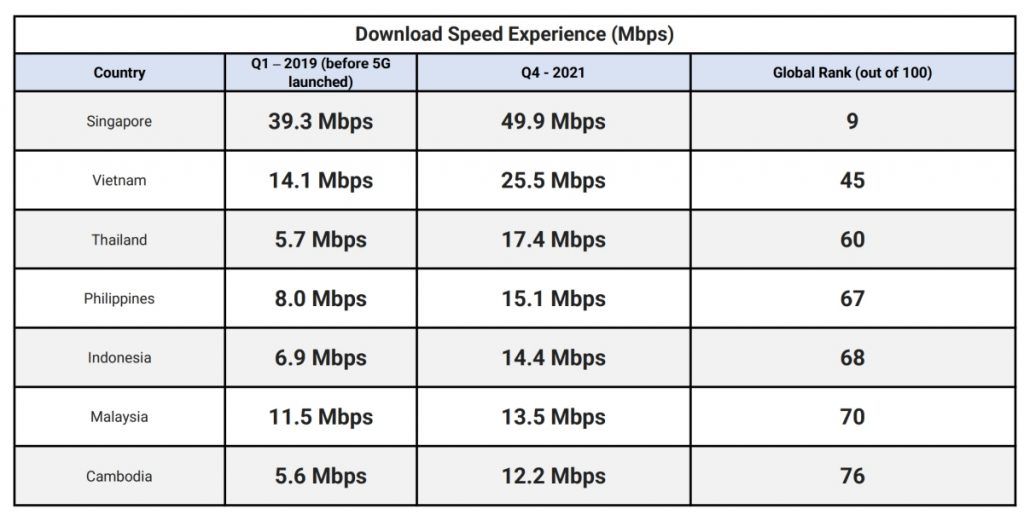
As we’ve mentioned previously, the numbers on JENDELA may seem great but the question remains if it reflects the real-world experience. Opensignal has painted a different picture in their last report with Malaysia having a much lower average speed of 13.5Mbps in Q4 2021. As a comparison, neighbouring countries have performed better with Indonesia having an average speed of 14.4Mbps, the Philippines with 15.1Mbps, Thailand with 17.4Mbps and Vietnam with 25.5Mbps. The speed improvements in other ASEAN countries are also due to the availability of 5G services which Malaysia is still lagging behind.
If you’re not getting quality mobile services as promised, the MCMC is urging users to file a report using the JENDELA app.
[ SOURCE ]
Related reading
- Does your telco suck in your area? MCMC wants you to report it on their new JENDELA app
- JENDELA exceeds its average mobile speed KPI of 35Mbps, but does it reflect real-world experience?
- Malaysia has not fully shut down its 3G networks, over 440,000 users have not switched to 4G phones
- 5G in Malaysia: Why are we so far behind?

